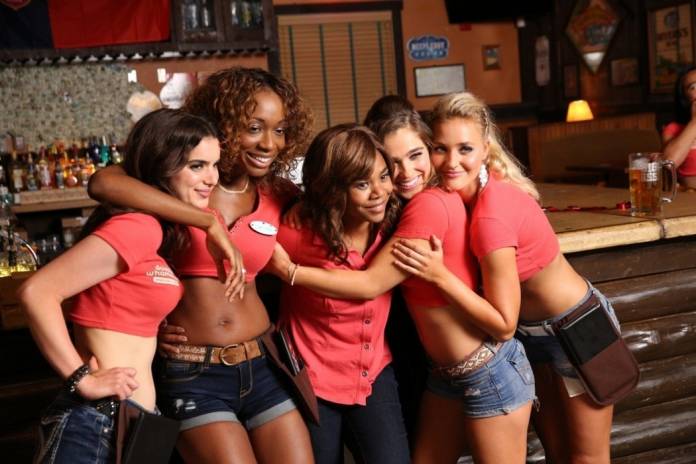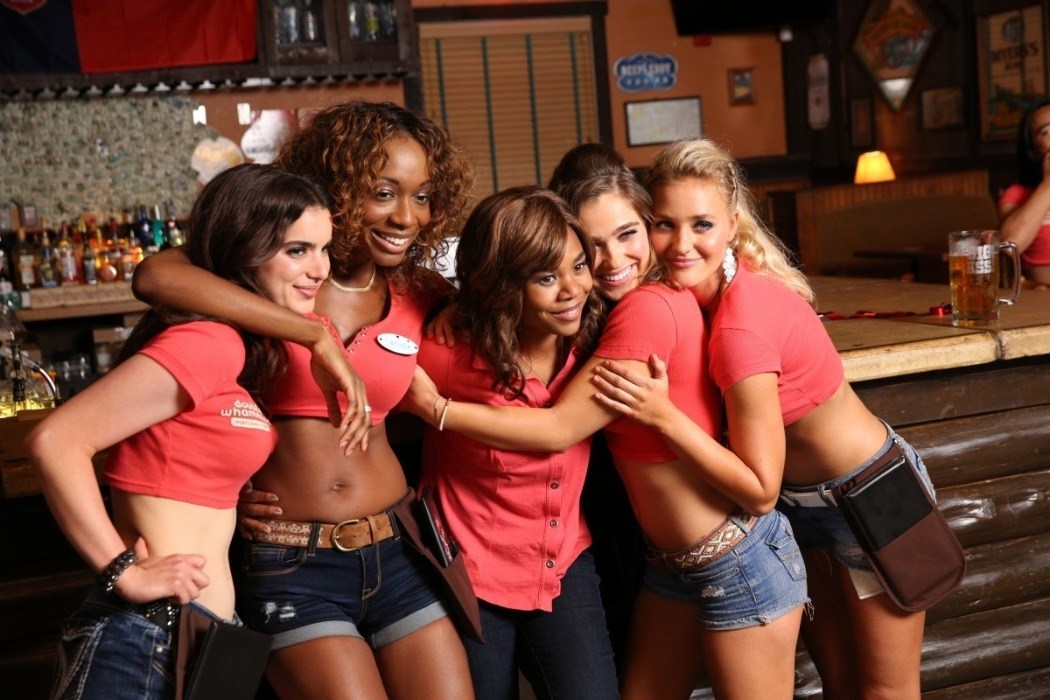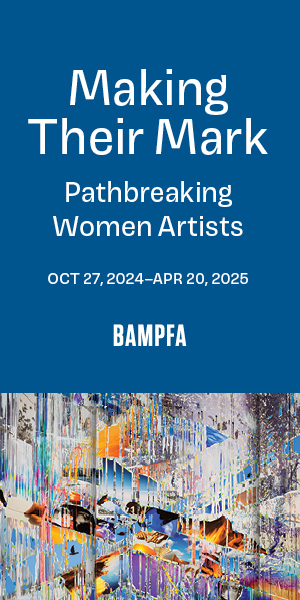SCREEN GRABS The MeToo movement has heightened what was already an increasingly loud conversation about women’s representation in the film industry, particularly in the top creative role of director. There have been heartening signs of improvement, however far we’ve yet to go. While it may be largely a fluke of scheduling, the fact that this week’s notable openings are almost entirely dominated by women-driven features—whether focusing on female protagonists, directed by women, or both—is surely one such encouraging sign.
The week’s manly major exceptions are Papillon, a remake of the fact-based prison survival epic that’s quite good, if not as distinctive as the 1973 Steve McQueen/Dustin Hoffman version; and We the Animals, an adaptation of Justin Torres’ 2011 novel. It’s about three half-Puerto Rican brothers growing up like a wild tribe unto themselves as protection against the hostility of white neighbors and the volatility of their parents’ relationship. Jeremiah Zagar’s debut fiction feature is a frequently striking, feverish pre-adolescent snapshot, though without much narrative meat on its bones.
Otherwise, it’s a big week for women onscreen, from the mainstream comedy of “controversial” Melissa McCarthy vehicle The Happytime Murders (Sesame Street’s current producers have taken legal exception to its blatant Muppet spoofery) to the Roxie premiere of Mind Game director Masake Yuasa’s latest surreal anime Night Is Short, Walk On Girl, in which a young woman drifts through a long night of bizarre adventures. There’s also the romantic comedy Juliet, Naked, in which Rose Byrne wavers between the equally flawed men in her life played by Chris O’Dowd and Ethan Hawke.
You could even make a case for Hitchcock’s 1958 Vertigo (revived in 70mm at the Castro this Friday through Sunday) being a riposte to the “male gaze,” whether Hitch saw it that way or not. It’s certainly a testament to masculine frailty, as police detective James Stewart’s obsession with Kim Novak only causes her great harm—twice, even.
It’s worth noting that nearly all the films below would be at risk of not playing SF at all if we had fewer dedicated arthouse screens—and the four-screen Opera Plaza is currently at high risk of being shuttered in favor of some to-be-determined pricier retail tenant. If you don’t want yet another piece of the city’s non-mainstream film culture to disappear, please consider writing the city’s Planning Commission or attending its next public hearing on the issue, which is scheduled for Sept. at City Hall.
WANDA
Wanda (writer-director Barbara Loden) is a pretty but vague, passive, none-too-bright young woman who’s practically a bystander in her own life—easy prey to any man who wants someone to push around for a while, then abandon. When we meet her she’s already seen a marriage and child custody slip from her grasp, leaving her rudderless. In a bleak Pennsylvania landscape of factories and mines, she sinks from one precarious situation to another, trusting the wrong strangers and getting no lucky breaks whatsoever.
Not long after Midnight Cowboy—a more hyperbolic ode to male loserdom—won Best Picture and great popularity (despite its “X” rating), there was scarcely an audience to be found for this 1970 study of a woman likewise drifting haplessly along society’s margins. Yet as a then-rare American movie directed by a woman, Wanda was championed over ensuing years by feminists and critics (and feminist critics), all lamenting that Loden never got the chance to direct again. (In fact she died of cancer just a decade later, at age 48.)
Newly restored after decades of relative inaccessibility, Wanda is a small masterpiece of verite-style naturalism, both in sympathy with its heroine and ruthlessly unsentimental about her plight. There were a lot of hipper American movies around the same time. But few capture the texture of American life at its most basic—working-class towns still barely affected by the supposedly titanic social-more changes of the 60s—like this simultaneously dreamy and gritty drama. Alamo Drafthouse. More info here.
SUPPORT THE GIRLS
Andrew Bujalski started out as a leading voice in the “mumblecore” indie epoch, making movies of medium interest that included a notable early role for Greta Gerwig (Hannah Takes the Stairs). His work got more interesting once he found a particular niche of making workplace seriocomedies, and this latest (following Computer Chess and Results) is the best one yet. Regina Hall gets a rare, welcome big-screen lead as Lisa, the reluctant but dedicated manager of Houston sports bar “Double Whammies”—a Hooters-like enclave whose main attraction is a lot of scantily clad waitresses kinda-sorta flirting with their customers.
It’s Lisa’s job to make sure the customer is “always right” but never gets too grabbily wrong, and that her staff is friendly but not too friendly with them. It’s a sometimes exasperatingly fine line complicated by “Big Ass”-sized beers and men who don’t know where to draw the line on their own behavior.
Taking place mostly over the course of one eventful day, Support the Girls drives Lisa’s ample resources to the brink. But as the title suggests, no amount of stress is enough to make her stop treating her “girls” right. The terrific support cast is led by Haley Lu Richardson in a stellar comic turn, but every performance here is a keeper. In its low-key, amiable way, Bujalski’s female ensemble piece has a lot to say about economic instability and the working poor, while finding redemption in the small kindnesses that can make unpleasant, under-paid jobs bearable. Opera Plaza. More info here.
MADELINE’S MADELINE
Josephine Decker’s second feature (following 2014’s intriguing Thou Wast Mild and Lovely) again focuses on the roiling emotions of a young woman straining for freedom. Our protagonist is a 16-year-old mixed race Manhattanite (Helena Howardf) at odds with her single mother (Miranda July), apparently bullied at school, finding some emotional outlet participating in an experimental “immersive theater” project under the direction of Evangeline (Molly Parker), who takes a motherly interest—though also an arguably exploitative artistic one. Is the “process” she puts her performers though, mining their private thoughts and lives for material, too much for Madeline? Or is Madeline too much for the project, bringing pre-existing mental health problems to the table that she (and the film) refuses to spell out for us?
Like We the Animals (see above), this is a tunnel-vision view of an atypical youth that’s alternately rapturous and discordant—like our heroine’s sometimes frightening mood swings. Decker’s style is impressionistic to the point of near-abstraction. This may cause some frustration in narrative terms, but also provides considerable poetical, atmospheric potency. Lunging, woozy, mercurial, the film’s highly stylized viewpoint is Madeline’s own—what we at first assume to be a heightened version of normal adolescent emotions, but which gradually start looking like something more deeply problematic. Don’t expect to get an explanatory diagnosis, though. Roxie. More info here.
MEMOIR OF WAR
Also running a gamut of increasingly unstable emotions is Melanie Thierry in Emanuel Finkiel’s French feature. She plays Marguerite Duras, the subsequently famed author of experimental fiction and director of austere, challenging films. (She’s best known as the scenarist of Alain Resnais’ classic Hiroshima mon Amour.) But here Duras is just a fledgling Parisian author near the end of WW2, desperate to discover what’s happened to her husband after he’s arrested for the Resistance work they were both involved in. As the Nazis edge closer towards defeat, his fate seems even more doubtful—he might well die in a work camp, or be executed as an “example.”
Frantic with worry, she’s approached by a French Gestapo agent (Benoit Magimel) who claims to be a fan (she’s already published one book). He offers possible news of and help for her husband. But is he simply practicing emotional blackmail, trying to infiltrate the Resistance through her? Adapted from Duras’ novel La Douleur, which in turn drew from her actual occupation-period diaries, this intimate drama apes the pared-down, astringent style of her mature writing, complete with lots of inner thoughts in voiceover narration. It’s a strong film addressing a common yet seldom dramatized wartime experience: The endless, debilitating waiting of civilians for loved ones who may or may not already be dead, the passing time a torment as they fear and assume the worst. Vogue Theatre. More info here.
The Wife
Popular U.S. novelist Meg Wolitzer’s 2003 tome is adapted by scenarist Jane Anderson and director Bjorn Runge in this dramatically satisfying if arguably too-neat critique of traditional gender roles—both in the domestic and artistic arenas.
Joan (Glenn Close) is longtime spouse to celebrated author Joe Castleman (Jonathan Pryce). She’s put up with his infidelities, raised his children (notably Max Irons as resentful son David), provided the stable support for his “genius”—which is now getting career-capping recognition from the Nobel committee. As they travel to Stockholm to receive that literary prize, she should be basking in a glory he’s eager to share with her. But instead, this crowning honor becomes a chisel that exposes all the fractures in their marriage—and the fraudulence in his fabled “craft.”
You go to a movie like this to see veteran performers (there’s also an expert one by Christian Slater as a snooping journalist) chew on meaty roles. They do not disappoint here. The film is handsomely produced. and delivers the requisite scorching confrontations as payoff for its long, flashback-laden buildup. Still, it’s all a little pat: The big twist can be spotted a mile off, and as portrayed here it’s not entirely convincing that Joan would have sacrificed her own promising talent as a writer to serve her husband’s career. Even so, if Close and Pryce wind up Oscar nominees, it won’t be unjust. At area theaters.





